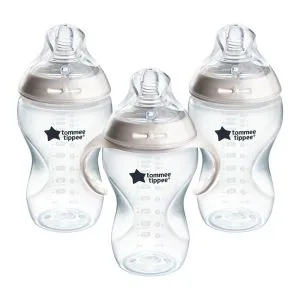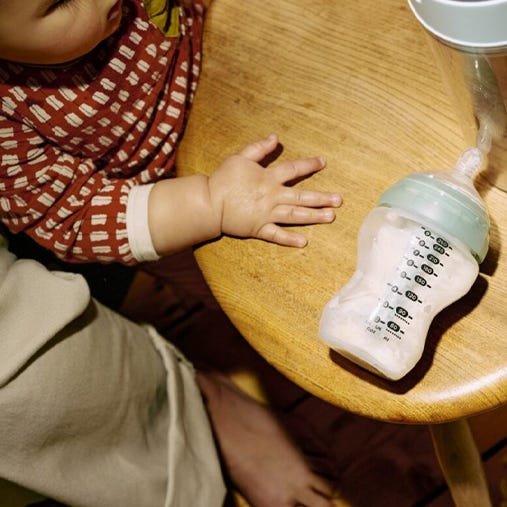How long does colic last for?
The duration of colic can vary from baby to baby, but it typically begins around two or three weeks of age and lasts for around three months. Some babies may experience colic for a shorter period, while others may have symptoms for up to six months.
You should check in with your doctor if your little one's colic symptoms don’t ease after the age of four months.
How to treat colic at home
Luckily, there are a range of different things you can try to help ease the symptoms of colic. The following things may help soothe your little one:
- hold or cuddle your baby when they’re crying
- hold them upright during and after feeding to stop them from swallowing air
- if you're bottle feeding, give an anti-colic bottle a go
- wind baby regularly
- gently rocking them
- warm baths
- white noise to reduce overstimulation
- keep feeding as usual
Do I need to visit a doctor for colic?
Yes, if you suspect that your baby is experiencing colic, it's best to consult with your healthcare provider to rule out any other potential causes of their discomfort.
You should seek medical advice right away if your little one:
- has a fever with a temperature of 100.4°F or higher
- has an unusual, weak, or very high-pitched cry
- is vomiting or has diarrhoea
- seems listless or sleepier than usual
- isn’t feeding well
How to cope with a colicky baby
Even though it can be really difficult to cope with, it's key to remember that colic is not a serious medical condition and will eventually pass on its own. However, it can be very distressing for both the baby and the parents.
If your baby has colic, you may be feeling overtired and stressed from the upset of dealing with a baby that won’t stop crying. Many parents of babies with colic say they seem guilty, helpless, exhausted, or angry.
It is important to ask for help from other parents, family members, or friends and seek medical advice if you are concerned about your baby's symptoms or if they're affecting your ability to care for your baby.










